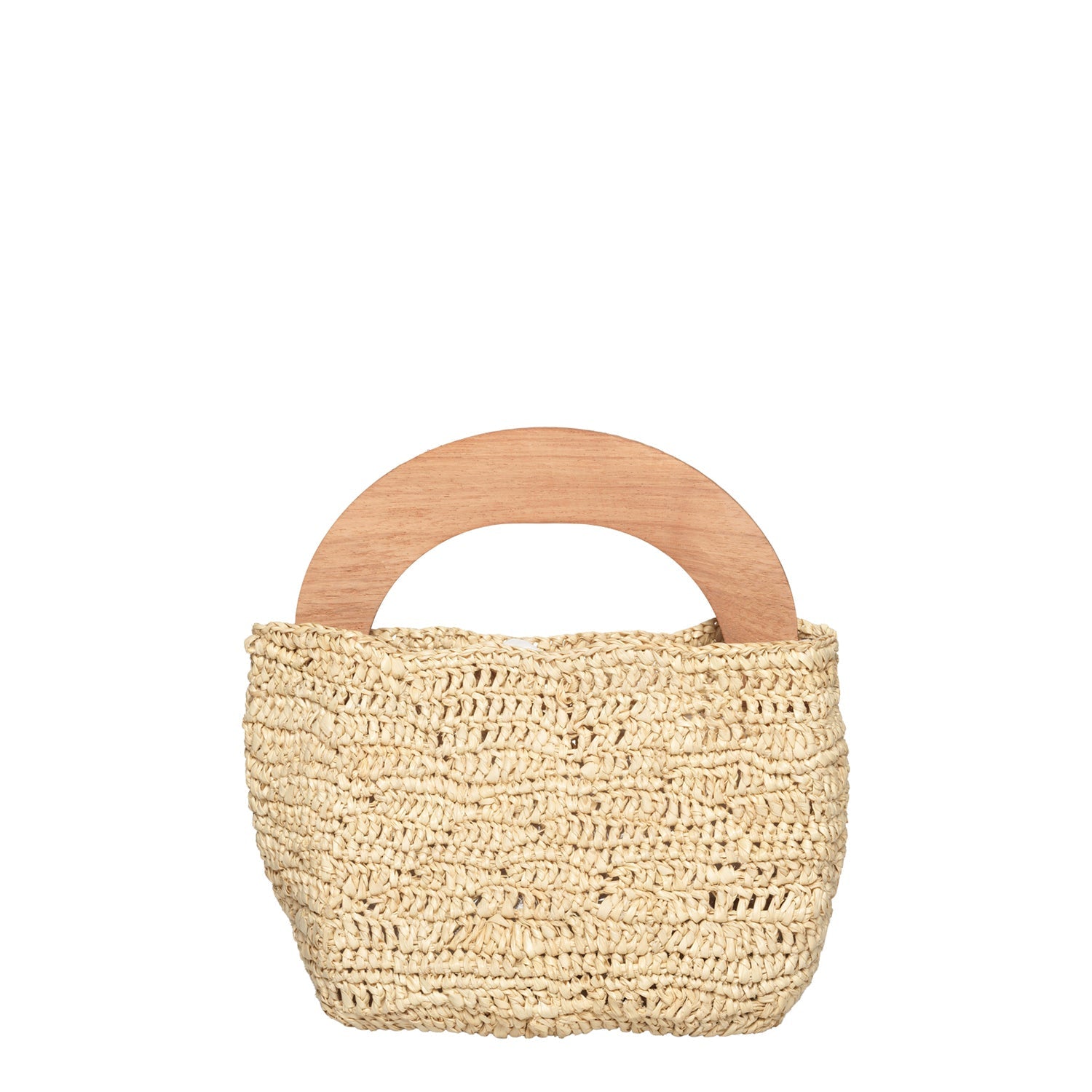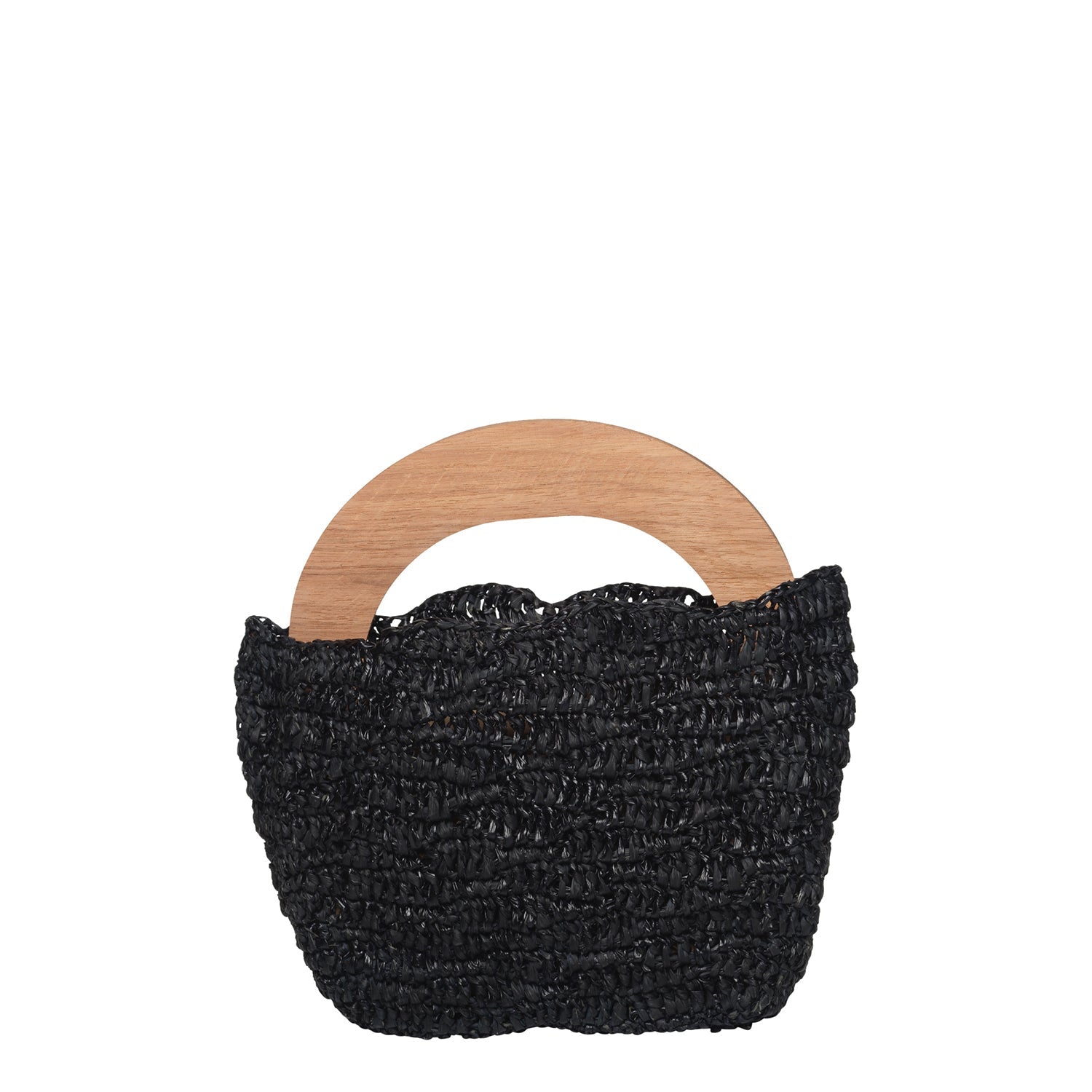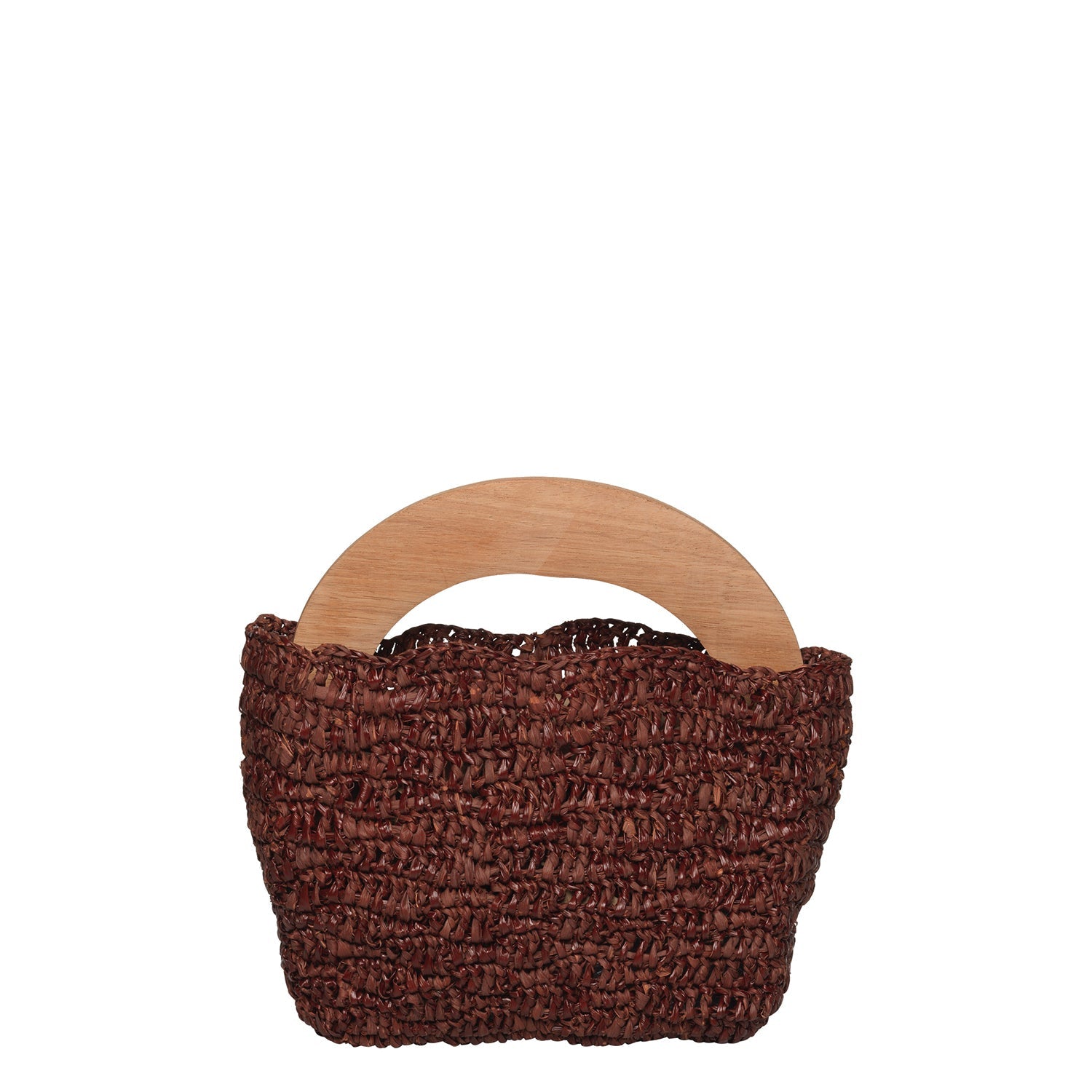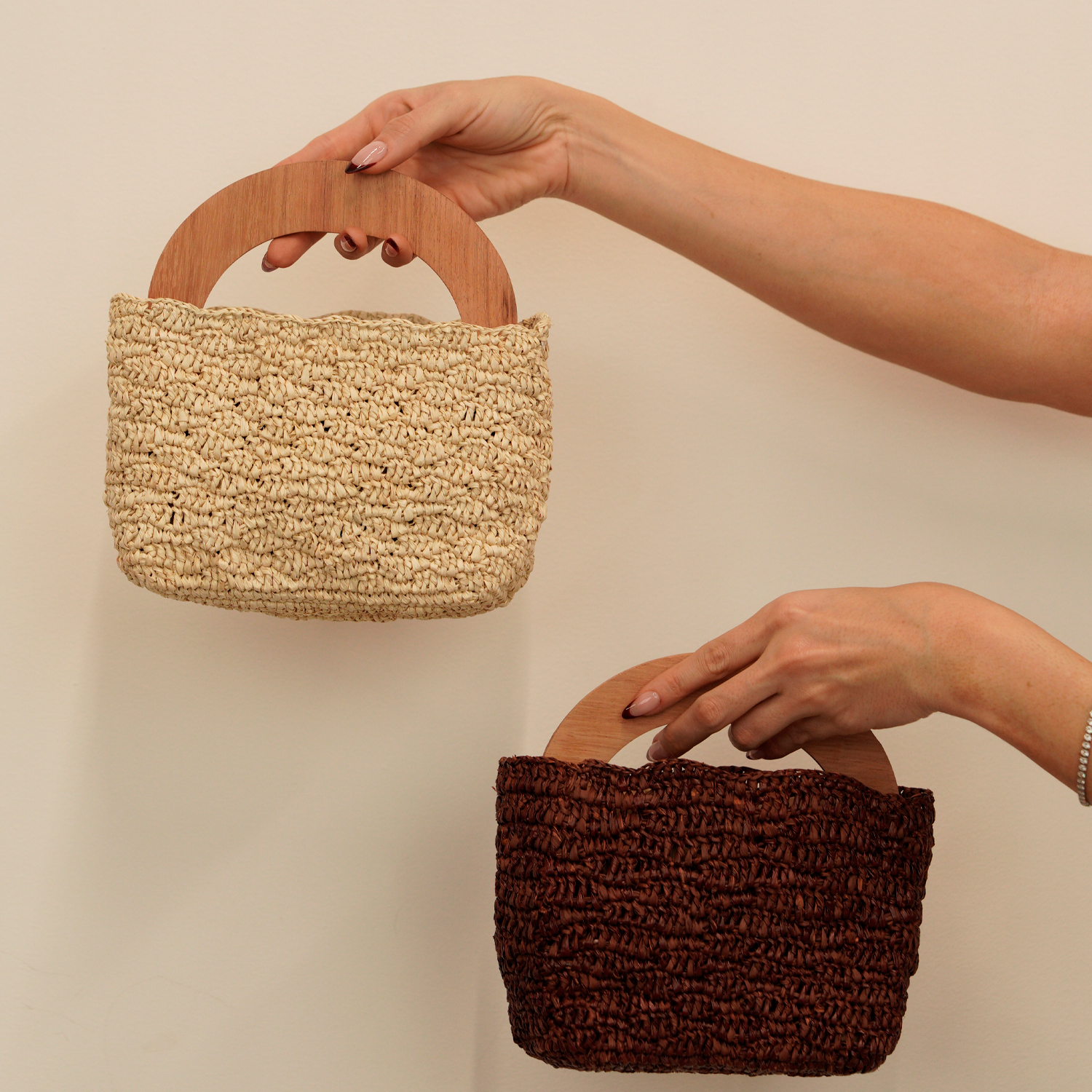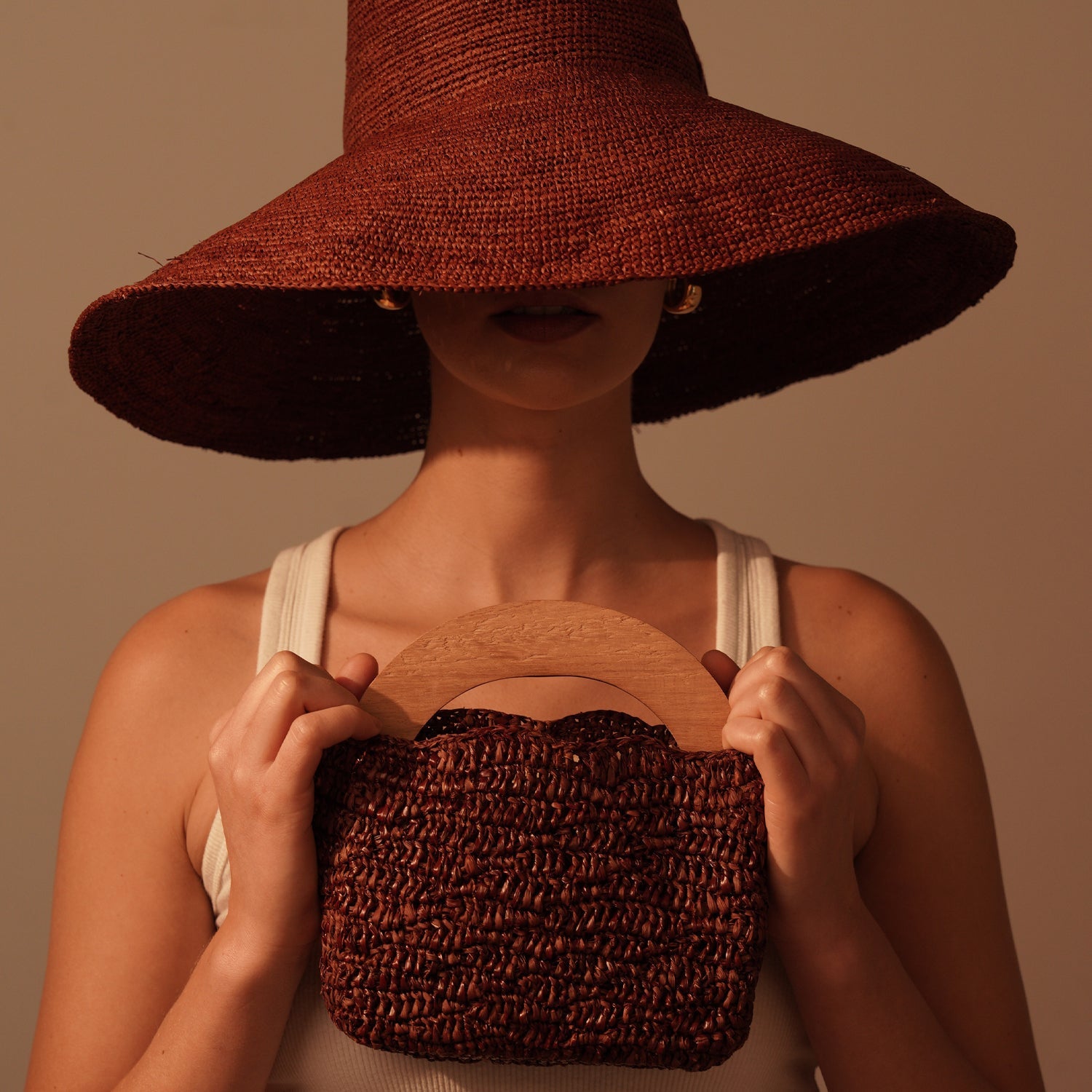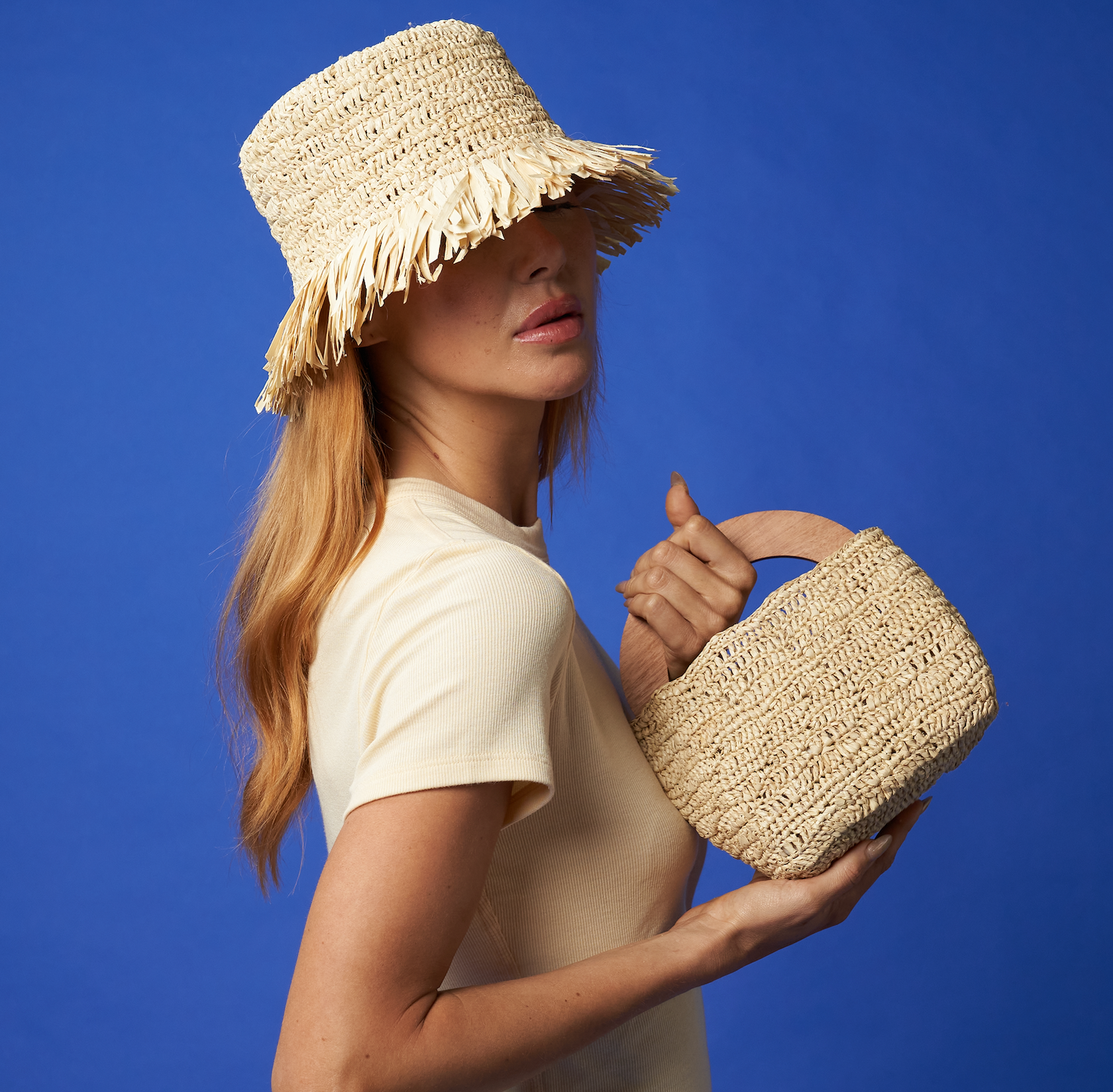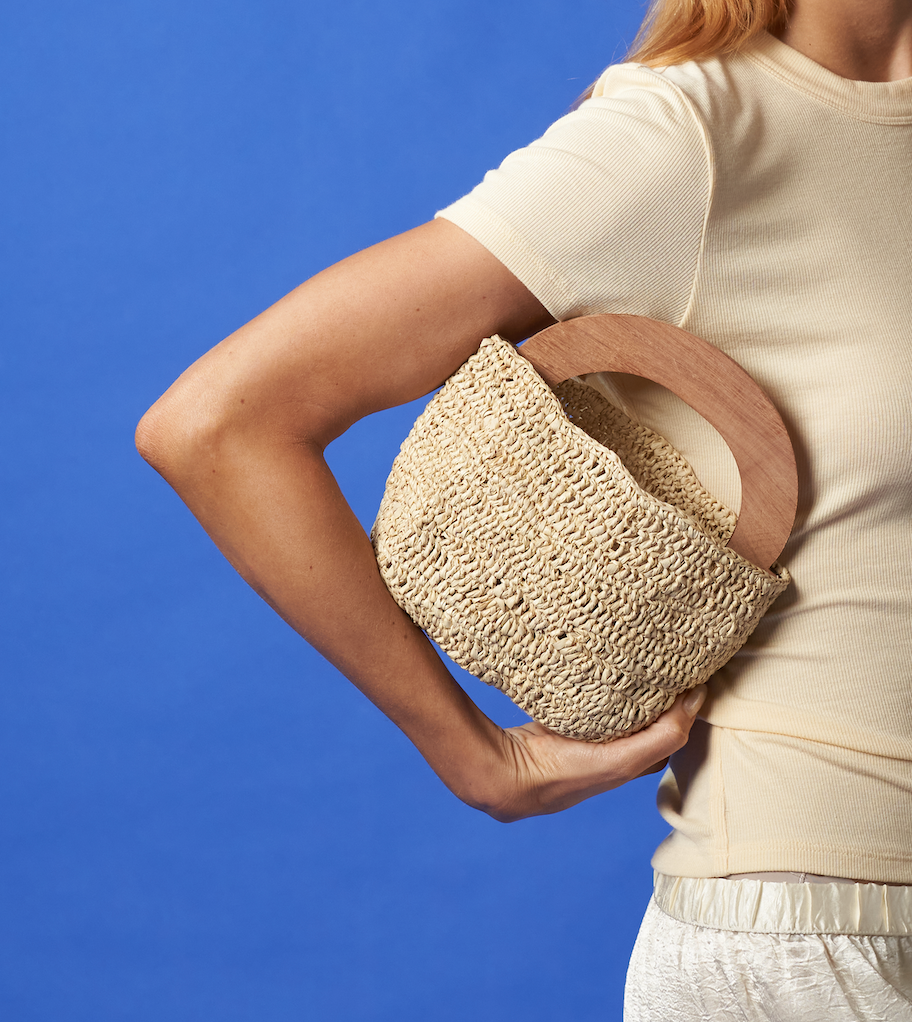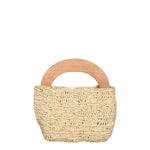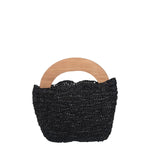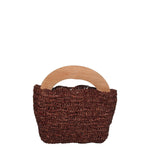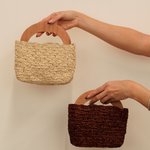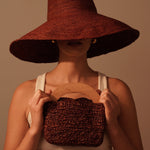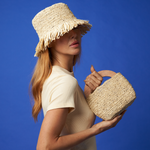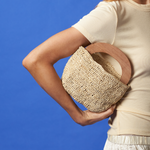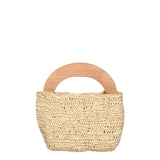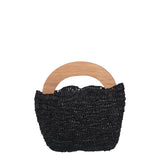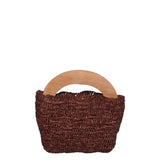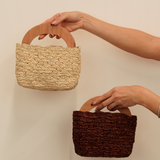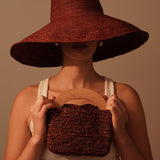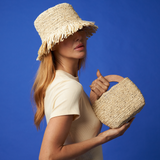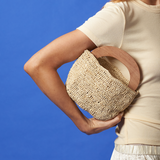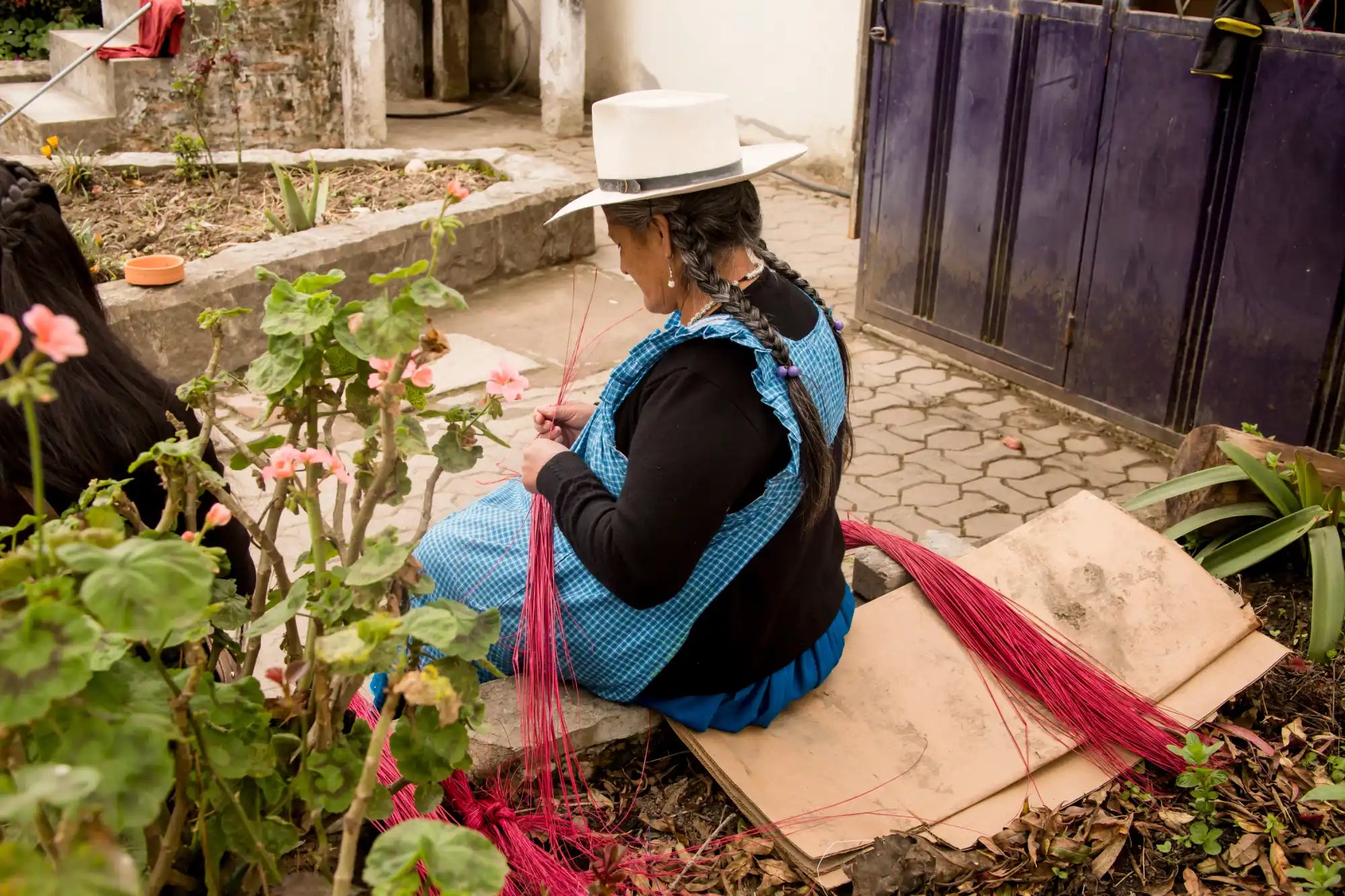FAQ
HOW IS TOQUILLA STRAW MADE?
Toquilla straw is made from the leaves of the toquilla palm, a plant native to the hot and humid coastal region of Ecuador:
- Harvest: The toquilla palms stems are harvested by farmers and the fiber is separated from the green outer skin.
- Clean: The bulb and outer husk are cleaned and stripped.
- Wash: The soft middle leaves are washed in a sulfur mixture.
- Bleach: The leaves are hung out to dry in the sun, which bleaches the straw and makes it ready for weaving.
- Split: The straw is split into strands by hand or with a fingernail. The thickness of the split strands determines how finely the hat will be woven.
- Weave: The weaver meticulously and tightly weaves the strands into an intricate, braid-like texture.
- Finish: The hat is washed, bleached, molded, ironed, and pressed.
The process of making a toquilla straw hat can take anywhere from one day to eight months, depending on the quality and finesse of the hat. The best quality hats are known as Montecristi, and the rarest and most expensive are hand-woven with up to 3,000 weaves per square inch.
The toquilla straw hat is woven from fibres from a palm tree characteristic of the Ecuadorian coast. Coastal farmers cultivate the toquillas and harvest the stems before separating the fibre from the green outer skin. This is boiled to remove chlorophyll and dried for subsequent bleaching with sulfur over a wood fire. Weavers take this raw material and begin weaving the crown and the brim of the hat. Weaving a hat can take from one day to eight months, depending on the quality and finesse. In Pile, a coastal community, weavers produce extra fine hats that require specific climatic conditions and involve an exact number of points in each row of weaving. The process is completed by washing, bleaching, moulding, ironing and pressing. The weavers are mostly peasant families and transmission of weaving techniques occurs within the home from an early age through observation and imitation. The skills and knowledge enfold a complex and dynamic social fabric including traditional techniques of cultivation and processing, forms of social organization, and use of the hat as part of everyday clothing and in festive contexts. It is a distinctive mark of the communities perpetrating this tradition and part of their cultural heritage.
WHAT MAKES TOQUILLA STRAW BETTER THAN RAFFIA?
Toquilla straw and raffia are both natural fibers used to make hats, but they come from different plants and have different characteristics:
Toquilla straw:
Also known as Panama straw, this premium material comes from the leaves of the Toquilla palm tree, which is native to Ecuador and other parts of Central and South America. Toquilla straw is known for being lightweight, flexible, and weatherproof. It's often used to make handwoven Panama hats, which are known for their quality and luxury.
Raffia:
This natural material comes from the leaves of the Raffia palm tree, which is native to Madagascar. Raffia is known for being durable, resilient, and slightly waterproof. It's also stretchy and robust, making it a good material for hats.
Toquilla straw is considered finer and more luxurious, as well as flexible, allowing for intricate designs in hat making.
HOW ARE TAGUA NUT BEADS MADE?
We love to incorporate tagua nut beads into many of our hats and bags. These "beads" are not only beautiful, but have a strong ties to our culture and our company values.
The Tagua is a unique plant that comes from the tropical mountains of Ecuador, and grows wild in forests called Taguales. It takes up to 15 years for the tagua palm to produce its first nuts. Each tree produces 20-50 lbs of nuts per year. The nuts take up to 12 months to ripen, until they are the colour and hardness of bone ivory.
Once mature, a tagua palm will produce nuts for up to 100 years.The nut clusters are gathered by people in rainforest communities, then dried for up to six months in the equatorial sun. Harvesting tagua causes no harm to any animals or the forests where it is gathered, and provides an economic incentive for local communities to protect the rainforests.
Natural dyes bring beautiful bright colours and the beads are polished in a tumbler until they shine.

